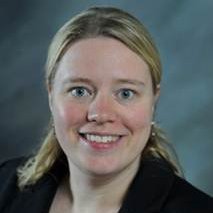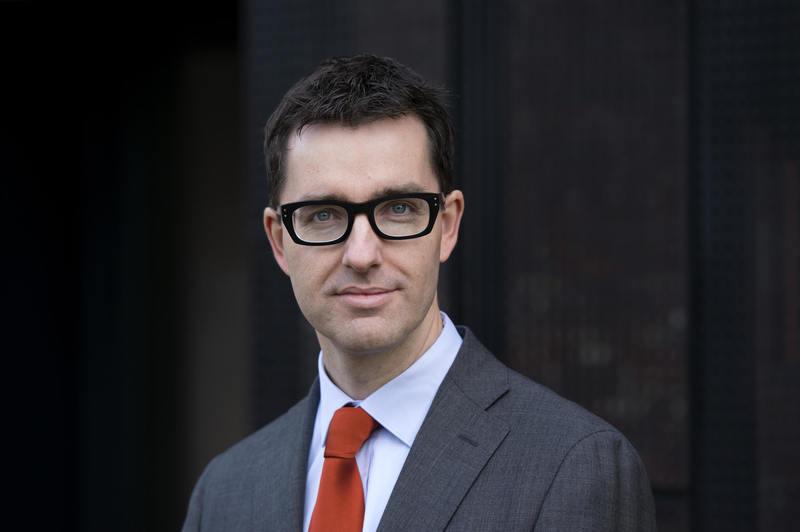
Interview with Sjoerd Douma and Judith Reijnen
Geschreven door op 10-07-2015
Interview with Sjoerd Douma and Judith Reijnen
A massive open online course (MOOC) is an online course aimed at unlimited participation and open access via the web. In addition to traditional course materials such as filmed lectures, readings, and problem sets, many MOOCs provide interactive user forums to support community interactions between students, professors, and teaching assistants. MOOCs are a recent and widely researched development in distance education which was first introduced in 2008 and emerged as a popular mode of learning in 2012.

 What were your main reasons for developing a MOOC on international tax law?
What were your main reasons for developing a MOOC on international tax law? The most important reason is that,
if you look at the media, you will notice an enormous interest in international
tax law. Multinationals are regularly being accused of avoiding taxation. There
is a great momentum to bring an understanding of international tax law and
practice to the attention of the general public. We have over 12,000
participants at this moment, from over 170 countries, and it is a goal of
Judith and myself to explain the background of this debate and stimulate
international discussion on this topic. These MOOCs are organized on a
central level at Leiden University. In order to obtain permission and a budget
for developing a MOOC, you need to apply by way of a written proposal. After
talking with our dean, professor Rick Lawson, we decided to apply and soon the
relevant Committee accepted our proposal! In January, we commenced with our
preparations. We have worked very hard to complete the MOOC in time for the
launch on Kingsday 2015.
How did you promote the MOOC?
The MOOC is featured on an online education platform called Coursera. Coursera works with universities to offer free courses online. A significant amount of the participants in the MOOC came to us through the Coursera webpage. Thousands of people from all around the world visit this website and sign up for MOOCs with all kinds of topics. So, thankfully, we did not have to promote our MOOC as intensely as you would expect with a result of more than 12,000 participants. But still, we have learned that many participants have indicated that this is their first MOOC, which means that we have been able to ‘tap a whole new market’ and attract a lot of participants ourselves.
Can you tell me more about the basic track and the advanced track?
We have developed two tracks for this MOOC. There is the basic track, which is meant for people who do not have prior knowledge of tax law but would like to gain an understanding of the basics of international tax law. Each week, the participants view a number of short video lectures and read an article (or two). Also, the participants can make exercises and discuss that week’s subject with their peers on our discussion forum. Students, who want to successfully pass the course, take a multiple-choice test on the weekly subjects and at the end of the course there is a final exam that covers the entire MOOC. For people who already know a little about tax law, and maybe are already working in the field and want to be kept up to date on current events, we have the advanced track. In addition to the weekly quizzes and the final exam, our advanced track students submit three papers during the course. The papers are evaluated by their peers. After completing the MOOC, the participant receives a ‘Statement of Accomplishment’ (with ‘Distinction’ if they complete the advanced track). Also, upon payment of a fee and after partaking in an identification procedure during the course, participants can earn an official certificate.
In what way have you incorporated existing Tax Law courses in the MOOC?
Students in the Master programme in Tax Law of Leiden University follow the MOOC as part of a course on Tax Treaties. In this way we can combine our academic efforts with the MOOC. We believe that education will change and transform over the next years. Online education will be one of the next steps, but we do not know yet which direction it will take. With the MOOC we have the ability to learn about online education and what it may mean for the future of education at Leiden University. For our Master students, we have chosen for ‘blended learning’ as we require an online effort from our students in the form of participation in the MOOC, in addition to that they must attend three lectures and a written exam. An interesting aspect of this MOOC is that we have changed the order in which we normally teach. Typically, students start with learning about the law and gradually from that point students move on to how to put the knowledge into practice. This course works the other way around. First, we explain how the rules have affected the tax practice and then we explain how the rules work. This difference in starting points requires a different mindset and that is exactly what we feel our Master students, who already have a good foundation in International Tax Law, can appreciate. Online education is really changing the way we teach and the MOOC is a great example of how we must adapt to these changes.
How do you see this MOOC developing in the nearby future?
We aim to keep this MOOC updated every few years. We will continue to strive to keep the course interesting. The average amount of time a student can stay alert and really listen to the lecturer is approximately six minutes. At a physical lecture you can use pictures, films, etc. to keep everyone’s attention, but especially online you need to be aware of the possibility that the lecture is being combined with Facebook etc. One of the big challenges is how to keep it interesting whilst the student is being tempted in so many ways.
